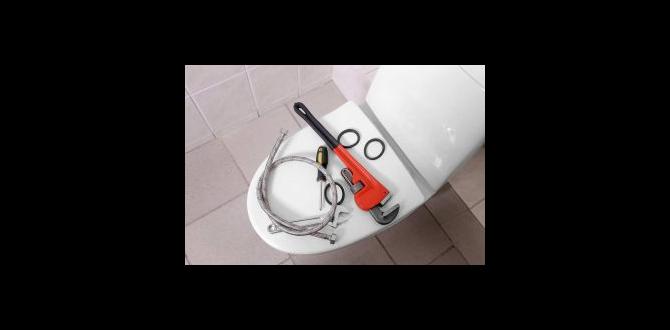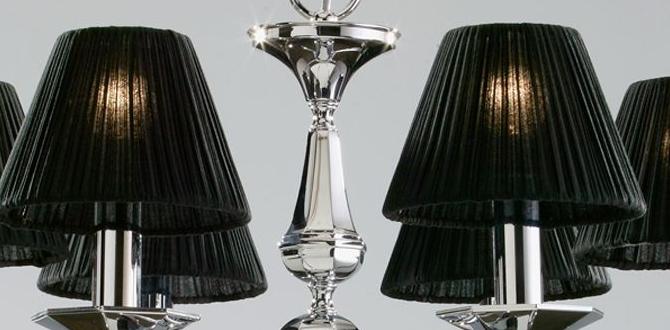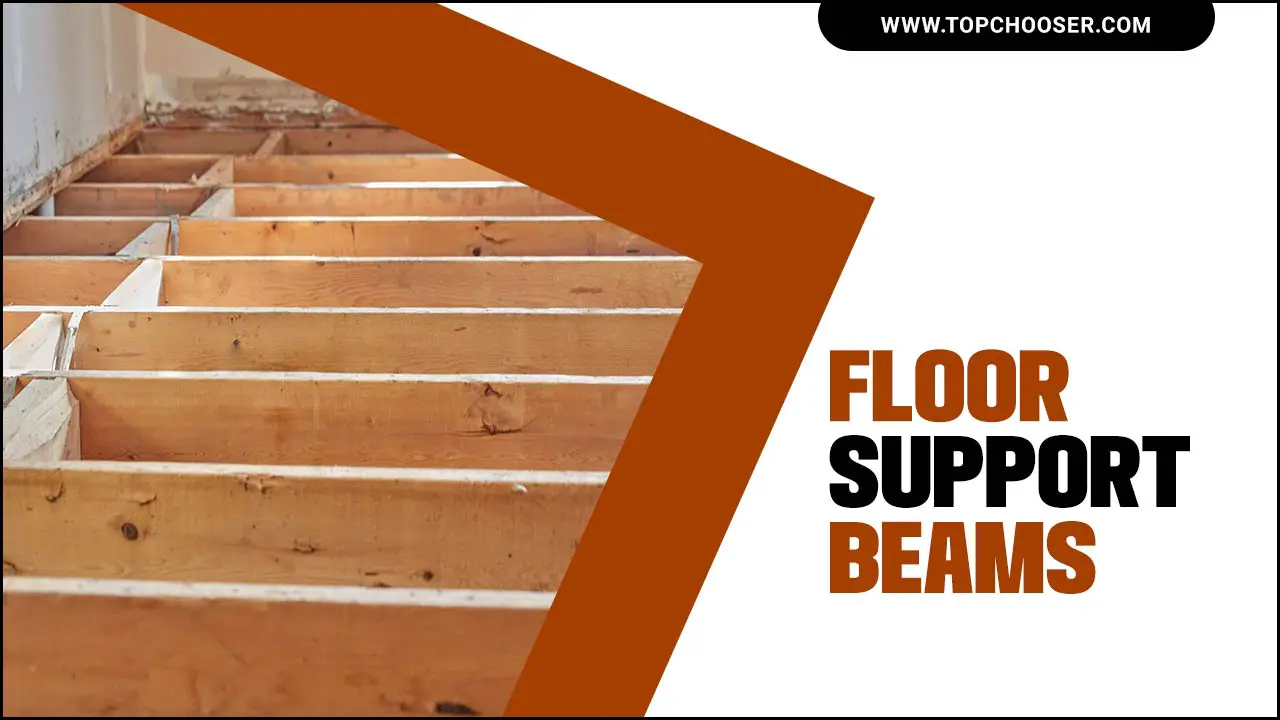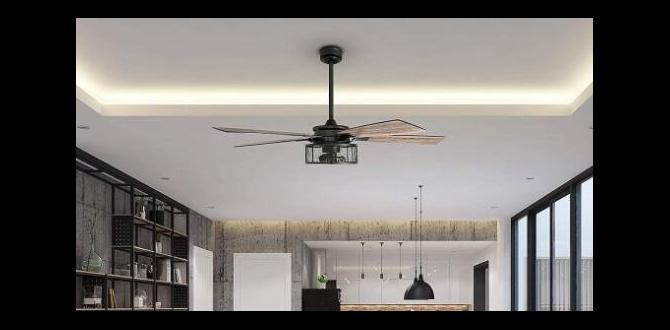Have you ever faced the dreaded clogged toilet? It’s annoying, right? You might wonder who should fix it—the landlord or the tenant.
This question often sparks debate. Imagine a tenant flushing too much toilet paper. They might think it’s not their fault if the toilet backs up. But what if the pipes are old? Shouldn’t the landlord be responsible?
Believe it or not, this situation happens more often than you think! Many people don’t know the rules about clogged toilets. Understanding who is responsible can help prevent arguments and confusion.
So, let’s dive into the tricky world of plumbing responsibilities. Knowing the answer could save you stress—and maybe even money. Who knew a simple toilet issue could spark such a discussion?
Who Is Responsible For Clogged Toilet: Landlord Or Tenant? Clogged Toilets Are A Common Issue In Rental Properties, Leading To Debates Over Who Holds The Responsibility For Repairs: The Landlord Or The Tenant. Understanding The Division Of Responsibilities Can Help Avoid Conflict And Ensure Prompt Resolution. Here, We’Ll Explore The Usual Policies, Tenant Rights, And Landlord Obligations Related To Clogged Toilets, As Well As Preventive Measures To Mitigate The Likelihood Of Clogs. Understanding Responsibilities Typically, Lease Agreements Outline The Responsibilities Of Both Landlords And Tenants. It’S Important To Check Your Specific Lease For Details, As These Can Vary By Location And Individual Contract Terms. In General, Landlords Are Responsible For Maintaining The Plumbing And Ensuring That All Fixtures Work Properly, While Tenants Are Responsible For Keeping Them In Good Condition During Their Tenancy. When Is The Tenant Responsible? Tenants Might Be Held Accountable For Clogged Toilets If The Blockage Is Caused By Improper Use. For Instance, If A Tenant Flushes Non-Biodegradable Items Such As Paper Towels, Feminine Hygiene Products, Or Foreign Objects, They May Be Liable For The Cost Of Clearing The Clog. In Such Cases, The Landlord Could Argue That The Tenant’S Misuse Directly Led To The Plumbing Issue. When Is The Landlord Responsible? Conversely, If The Clog Results From Old Plumbing, Tree Roots Invading The Sewage Line, Or Other Structural Issues Not Related To The Tenant’S Actions, The Landlord Typically Bears The Responsibility For Repair Costs. Landlords Must Ensure That The Plumbing Is Well-Maintained And Operational Prior To A Tenant Moving In. State Laws And Lease Agreements Legal Standards Regarding Landlord And Tenant Responsibilities For Plumbing Issues Can Vary Significantly By State. Many States Have Regulations In Place That Protect Tenants’ Rights And Outline Landlords’ Obligations For Essential Services, Including Plumbing. Familiarizing Oneself With Local Laws Is Crucial For Both Parties To Understand Their Rights And Responsibilities In Such Situations. Preventive Measures To Prevent Clogged Toilets, Both Landlords And Tenants Should Work Together. Tenants Should Be Educated About What Can And Cannot Be Flushed, While Landlords May Provide Informative Materials. Regular Maintenance Checks Conducted By The Landlord Can Also Catch Issues Before They Escalate Into Significant Problems. Conclusion Determining Who Is Responsible For A Clogged Toilet—Landlord Or Tenant—Depends On The Circumstances Surrounding The Issue. By Understanding The General Principles Of Landlord-Tenant Law And Communicating Openly, Both Parties Can Navigate This Issue With Less Stress And Confusion. It’S Always Wise To Consult Your Lease And Consider Legal Advice If Disputes Arise.

Who is Responsible for Clogged Toilet: Landlord or Tenant?
When a toilet clogs, who should fix it? This question often puzzles renters. Typically, tenants must handle minor issues, like a simple clog. However, if the clog stems from old pipes or construction, the landlord might be responsible. Knowing the lease terms helps clarify duties. Quick fact: around 70% of tenants believe landlords should fix major plumbing problems. Understanding your rights can prevent stress and save money. So, what does your lease say?Understanding Tenant and Landlord Responsibilities
Define typical responsibilities of landlords and tenants regarding property maintenance.. Explain how these responsibilities can vary based on lease agreements..Landlords and tenants both have important jobs when it comes to keeping a property in tip-top shape. Landlords usually handle big repairs, like fixing a leaky roof or the heater that only produces ice cubes. Tenants, on the other hand, are often in charge of smaller tasks, like changing light bulbs and keeping things clean. Lease agreements can twist this around, making each party responsible for different tasks, so it’s good to read the fine print. Remember, if your toilet has a bubble problem, it might be team work required!
| Responsibility | Landlord | Tenant |
|---|---|---|
| Major Repairs | Yes | No |
| Routine Maintenance | No | Yes |
| Utilities | Sometimes | Depends on lease |
Common Causes of Clogged Toilets
List the frequent reasons for toilet clogs, including tenantrelated issues.. Discuss how different causes may impact liability..Many things can lead to a clogged toilet, and not all of them are friendly. Some common suspects are: excess toilet paper, non-flushable items like wipes, and even furry friends who think the toilet is a game! Each cause can change who is at fault for the mess. If it’s a tenant-related issue, they might be responsible, while landlord problems usually fall back on them. A well-run toilet is a happy toilet!
| Cause | Who is Responsible? |
|---|---|
| Excess Toilet Paper | Tenant |
| Non-Flushable Items | Tenant |
| Tree Roots | Landlord |
| Old Pipes | Landlord |
Legal Perspectives on Property Maintenance
Summarize relevant laws governing tenant and landlord responsibilities for plumbing issues.. Examine local regulations that may influence liability for clogs..Understanding who takes care of plumbing messes can be tricky! Generally, landlords must keep the main pipes working well. So, if a toilet gets clogged from normal use, it’s often their job. But if someone was trying to give the toilet a swimming lesson with too much toilet paper? Well, that might land on the tenant! Local laws can change this game. In some areas, specific rules say who is responsible. Always best to check and avoid a messy situation!
| Responsibility | Who Takes the Blame? |
|---|---|
| Normal wear and tear | Landlord |
| Tenant misuse | Tenant |
| Local law exceptions | Check local regulations |
Signs of Tenant Negligence
Identify behaviors that may indicate tenant neglect leading to clogs.. Provide case examples where tenant actions were deemed responsible for plumbing problems..Tenant negligence can lead to some surprising plumbing problems. For example, if tenants flush toys, wipes, or even their hopes down the toilet, it can cause major clogs. Picture this: a rubber ducky causing a waterworks disaster! Signs of neglect may include a toilet that runs constantly or has a bad smell. Remember, if a tenant turns the bathroom into a science experiment, they might be responsible for that nasty backup.
| Signs of Tenant Neglect | Examples |
|---|---|
| Frequent clogs | Only flushing things that belong there, like toilet paper. |
| Weird sounds from plumbing | Ignoring strange gurgling, which sounds like a horror movie! |
| Poor bathroom maintenance | A dirty toilet that hasn’t seen a scrub in ages. |
When Landlords are Liable
Outline scenarios where landlords are primarily responsible for maintaining toilet functionality.. Discuss maintenance obligations that landlords must uphold according to law..Landlords have key duties to keep toilets working right. If a toilet breaks because of age or poor care, the landlord is in charge. Here are some important responsibilities:
- Ensure all plumbing is in good order.
- Fix leaks or clogs from normal use.
- Respond to repair requests quickly.
Landlords must follow laws that say they can’t let bad conditions harm tenants. It’s their job to provide a safe space. When toilets break due to their lack of care, they are responsible.
Who takes care of normal toilet wear?
Landlords are responsible for fixing toilets due to regular wear and tear.
Resolving Disputes Over Clogged Toilets
Provide tips on how tenants and landlords can address and resolve disputes amicably.. Discuss the role of mediation and legal action if necessary..Working together is the best way to solve a clogged toilet dispute. Clear and kind communication can help everyone understand each other better. Here are some tips:
- Talk to each other and share views.
- Stay calm, even if you disagree.
- Consider using a mediator if needed.
- Know when to seek legal help if the problem lasts.
Mediation can help find a fair solution without arguing. If it doesn’t work, legal action may be necessary. Always remember, maintaining a good relationship can make living together easier for everyone.
Who should pay for a clogged toilet?
The answer can depend, but usually, landlords take care of plumbing issues unless it’s the tenant’s fault.
Preventive Measures for Both Parties
Suggest proactive steps tenants and landlords can take to avoid clogged toilets.. Recommend regular maintenance practices to ensure plumbing efficiency..Clogged toilets can cause big problems for everyone. To avoid these issues, both tenants and landlords should take some simple steps. Regular maintenance is key. Here are some actions to consider:
- Check for foreign objects in the toilet.
- Clear the plumbing vents regularly.
- Use gentle cleaners for the toilet.
- Inspect plumbing for leaks or clogs.
By working together, both parties can keep toilets running smoothly. This saves trouble and money!
What should tenants do to prevent clogs?
Tenants should be careful about what they flush down the toilet. Items like wipes, paper towels, and too much toilet paper can cause clogs.
What should landlords do for maintenance?
Landlords must perform regular inspections and repairs to plumbing systems. This helps in finding issues before they become big problems.
Conclusion
In conclusion, knowing who is responsible for a clogged toilet helps tenants and landlords. Usually, if you caused the blockage, it’s your job to fix it. If it’s a maintenance issue, then the landlord should take care of it. Always check your rental agreement for details. For more tips, consider reading about landlord-tenant rights.FAQs
Under What Circumstances Is A Landlord Typically Responsible For A Clogged Toilet?A landlord is usually responsible for a clogged toilet if it’s caused by something they should fix. This might include problems with the pipes or old plumbing. If you accidentally flush something wrong, like toys or paper towels, you’re responsible. Always tell your landlord right away if you have a clog!
What Actions Can Tenants Take To Prevent Clogs And Avoid Potential Disputes With Landlords?You can help prevent clogs by being careful with what you put down the sink and toilet. Don’t flush anything except toilet paper. In the kitchen, don’t pour grease down the drain. We should also clean the drains regularly and report any slow drains to the landlord right away. This way, we can keep our home happy and avoid problems.
How Do Local Laws Or Rental Agreements Define Maintenance Responsibilities For Plumbing Issues?Local laws and rental agreements say who fixes plumbing problems. Usually, the landlord takes care of big issues, like broken pipes. If you accidentally broke something, it’s your job to fix it. Always read your rental papers to know your responsibilities. If you’re unsure, ask your landlord!
What Are Common Types Of Toilet Clogs That May Fall Under Tenant Responsibility?Common toilet clogs that you might be responsible for are mainly caused by too much toilet paper or foreign objects. If you flush things like wipes, toys, or food, it can cause a blockage. Hair and other things can also build up and create clogs. It’s important to only flush toilet paper and human waste to avoid these issues. If something else causes the clog, it might be your job to fix it.
How Should Tenants Communicate With Landlords About Clogged Toilets To Ensure Proper Handling Of The Issue?If your toilet is clogged, tell your landlord right away. Use a polite tone in your message. You can call them or send a text or email. Describe the problem clearly. Include details like when it happened and if you tried any fixes. This helps them understand and fix the issue faster.








